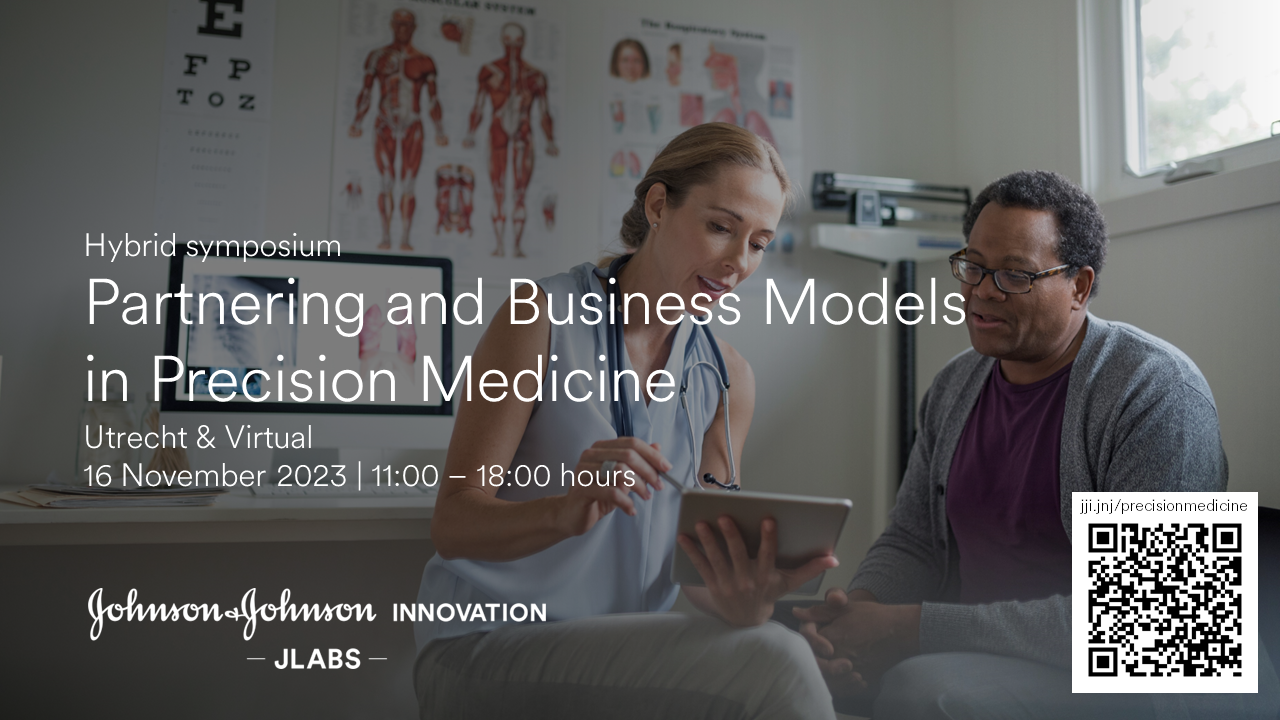
The argument for precision medicine is pretty simple. Through a personalised approach, you can avoid the trial-and-error cycle that comes with the traditional practice of medicine. This would potentially save costs and improve patients’ lives.
However, bringing a precision medicine solution to patients, comes with a unique set of challenges, especially for early-stage life sciences companies. Two of these challenges will be the focal point for this Johnson & Johnson Innovation – JLABS symposium:
-
The know-how, IP and data of all the different components of a precision medicine innovation are rarely owned by a single entity. Collaboration between startups, pharma companies, academic groups and government are usually crucial. How do you successfully navigate such collaborations?
-
In theory precision medicine would lead to overall cost-savings in healthcare. However, these cost-savings might impact a different budget than the budget out of which you are most likely to get reimbursed. Moreover, developing new interventions in the precision medicine space may be increasingly expensive while the target population becomes smaller, leading to costly new approaches. Who is going to pay for your innovation and which business model supports the execution of such a revenue structure?
During the symposium we will investigate three topics in more detail.
Topic 1: Diagnostics & biomarkers
During this session we will focus on innovations supporting the classification of patients into subpopulations based on differences in biological markers such as markers in blood samples, the nucleome or “omics”. We will touch upon specific challenges such as the regulatory pathway and integration in standard-of-care.
Topic 2: Patient stratification using data sets
The discussion will focus on the use of small or big data sets, such as those from biobanks to distinguish subgroups of patients. Solutions in this space might include longitudinal studies, federated learning in digital medical records, or imputation from one genotype to another. Issues to address might include governance of health-related data, infrastructure and system integration.
Topic 3: Digital applications for Real-World Evidence studies
We will explore the utilization of applications, wearable devices, and other techniques for collecting health-related data both inside and outside clinical settings. This includes standardizing and validating methods to obtain structured data aligned with the FAIR principles to ensure alignment with Real-World Evidence standards. We will delve deeper into key areas such as patient involvement, impartiality of data, and the protection of data privacy.
At the start of the program, Johnson & Johnson Innovation representatives will explain the different ways in which we might partner in the precision medicine space.
For more information about this event click here.